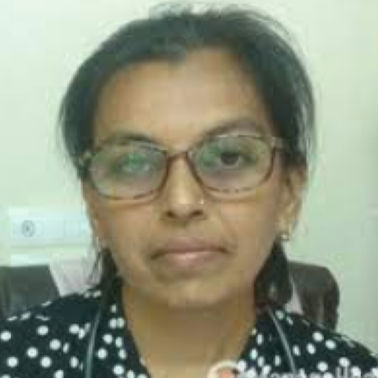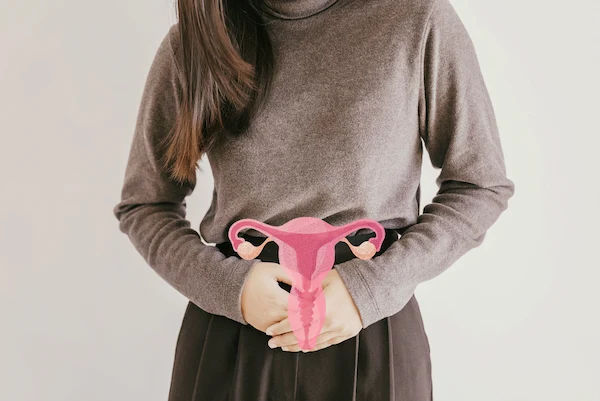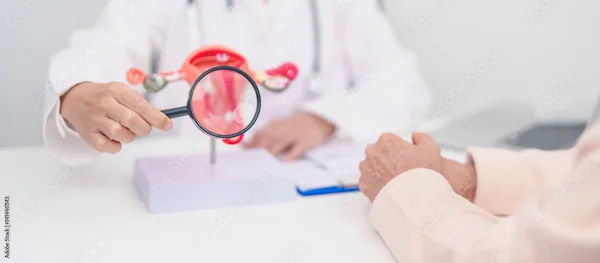Back And Shoulder Pain After Hysterectomy
Experiencing back or shoulder pain after a hysterectomy? Learn the common causes, symptoms, and effective ways to manage and relieve discomfort during recovery.

Written by Dr.Sonia Bhatt
Last updated on 3rd Jul, 2025

Introduction
Undergoing a hysterectomy (surgical removal of the uterus) is a major procedure that can bring relief from various gynaecological conditions. However, some women experience back and shoulder pain afterwards, which can be concerning. If you're dealing with this discomfort, know that you're not alone, and there are ways to manage it effectively.
Why Does Back and Shoulder Pain Happen After Hysterectomy?
Several factors can contribute to back and shoulder pain after a hysterectomy:
1. Surgical Positioning – During the procedure, you may lie in a specific position for an extended period, which can strain muscles and nerves.
2. Gas Pain (Laparoscopic Hysterectomy) – If you had a laparoscopic or robotic hysterectomy, carbon dioxide gas is used to expand the abdomen. Some of this gas can irritate the diaphragm, leading to referred pain in the shoulders.
3. Muscle Weakness & Posture Changes – The abdominal muscles may weaken after surgery, causing the back to compensate, leading to strain.
4. Nerve Irritation – Surgical incisions or internal healing can sometimes irritate nerves, causing discomfort in the back or shoulders.
5. Reduced Mobility – Limited movement during recovery can lead to stiffness and muscle tension.
Common Symptoms
Back and shoulder pain following a hysterectomy can present in various forms.
Dull or sharp pain in the lower back
Shoulder pain (often more noticeable when taking deep breaths)
Stiffness in the back or neck
Discomfort that worsens with movement or prolonged sitting/standing
Consult Top Specialists for Your Symptoms
How to Manage Back and Shoulder Pain After Hysterectomy
Below are some strategies to help ease back and shoulder pain during recovery.
1. Gentle Movement & Stretching
Introducing mild physical activity can prevent stiffness and promote circulation.
Start with short walks to improve circulation and reduce stiffness.
Try gentle stretches for the back and shoulders once your doctor approves.
Avoid heavy lifting or strenuous activity until fully healed.
2. Proper Posture & Support
Maintaining correct posture and using supportive aids can minimise strain on the back and shoulders, helping to prevent additional discomfort.
Use a small pillow for back support when sitting.
Avoid slouching—keep your shoulders relaxed and spine aligned.
Sleep on your back or side with a pillow between your knees to reduce strain.
3. Pain Relief Methods
Targeted pain relief techniques can significantly alleviate muscle soreness and inflammation.
Heat Therapy – A warm compress can relax tense muscles.
Cold Pack – If there’s swelling, ice packs can help reduce inflammation.
Over-the-Counter Pain Relievers – Medications like acetaminophen or ibuprofen, if approved by your doctor, can ease discomfort.
4. Breathing Exercises
Deep breathing helps release trapped gas which is common after laparoscopic surgery. Try diaphragmatic breathing; inhale deeply through your nose, expanding your belly, then exhale slowly.
5. Gradual Strengthening Exercises
Once cleared by your doctor, gentle core-strengthening exercises (like pelvic tilts) can help support your back. Physical therapy may be beneficial if pain persists.
6. Hydration & Nutrition
Drink plenty of water to help flush out residual gas and reduce bloating. Eat fibre-rich foods to prevent constipation, which can worsen back pain.
When to Seek Medical Help?
While some discomfort is normal, consult your doctor if:
Pain is severe or worsening
You notice swelling, redness, or fever (signs of infection)
Pain persists beyond a few weeks
You experience numbness or weakness in limbs
Final Thoughts
Back and shoulder pain after a hysterectomy is often temporary and manageable with self-care. However, if your discomfort doesn’t improve or interferes with daily life, don’t hesitate to reach out to a healthcare provider.
If you need personalised advice, you can consult a specialist on Apollo 24|7 for expert guidance and support. Recovery takes time, so be patient with your body—you’re on the path to healing!
Consult Top Gynaecologists
Consult Top Specialists for Your Symptoms

Dr Swatika Kumari
Obstetrician and Gynaecologist
19 Years • MBBS, DGO, DNB Obstetrics & Gynaecology
Nashik
Apollo 24|7 Clinic - Maharashtra, Nashik

Dr. Priyanka Surisetty
Obstetrician and Gynaecologist
8 Years • MBBS, DGO
Visakhapatnam
Apollo 24|7 Clinic - Andhra Pradesh, Visakhapatnam

Dr. Veena H
Obstetrician and Gynaecologist
16 Years • MBBS DGO
Bangalore
Apollo 24|7 Clinic - Karnataka, Bangalore

Dr. Mona Yadav
Obstetrician and Gynaecologist
19 Years • MBBS, MD (Obstetrics & Gynaecology)
Dombivli
Nulife multispeciality, Dombivli

Dr. Asha Rani Singh
Obstetrician and Gynaecologist
24 Years • MBBS DGO
Delhi
Dr Asha Rani Singh Clinic, Delhi
Consult Top Gynaecologists

Dr Swatika Kumari
Obstetrician and Gynaecologist
19 Years • MBBS, DGO, DNB Obstetrics & Gynaecology
Nashik
Apollo 24|7 Clinic - Maharashtra, Nashik

Dr. Priyanka Surisetty
Obstetrician and Gynaecologist
8 Years • MBBS, DGO
Visakhapatnam
Apollo 24|7 Clinic - Andhra Pradesh, Visakhapatnam

Dr. Veena H
Obstetrician and Gynaecologist
16 Years • MBBS DGO
Bangalore
Apollo 24|7 Clinic - Karnataka, Bangalore

Dr. Mona Yadav
Obstetrician and Gynaecologist
19 Years • MBBS, MD (Obstetrics & Gynaecology)
Dombivli
Nulife multispeciality, Dombivli

Dr. Asha Rani Singh
Obstetrician and Gynaecologist
24 Years • MBBS DGO
Delhi
Dr Asha Rani Singh Clinic, Delhi




